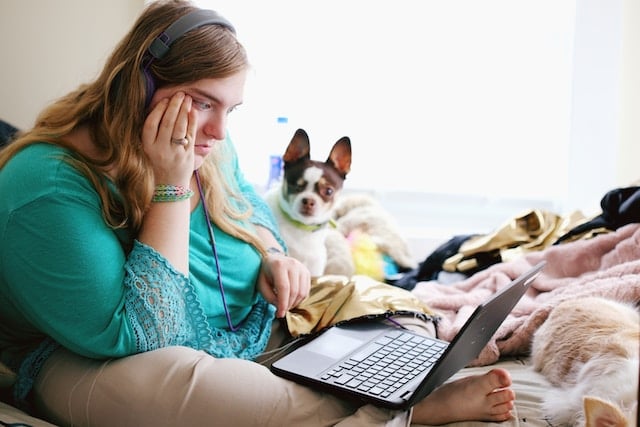Remote work is no longer just a trend or a temporary solution to a problem (otherwise known as the pandemic).
It has now become standard practice for many businesses around the world, leaving employees free to move around while continuing to do their jobs.
For some, this can mean spending a winter in the Austrian mountains to enjoy skiing at the weekends. Or working from Vienna for a couple of months to take in the culture and history.
But the remote worker life isn’t always as carefree as it sounds – especially when it comes to paying tax.
FOR MEMBERS: Reader question: Will Austria follow Spain in introducing a digital nomad visa?
Remote working and Austrian tax law
According to partner Marco Thorbauer at legal firm Schönherr, remote work employees of non-Austrian employers are liable to pay tax in Austria. But to do this they have to set up an Austrian Permanent Establishment (PE), which refers to the place where the work is carried out.
Thorbauer said: “When it comes to Austrian wage tax, any fixed facility in Austria in which employees carry out their work tasks for at least one month is sufficient.
“Therefore, employees working from their homes in Austria regularly create a PE for wage tax purposes for their non-Austrian employer. As a result, the employer is required to withhold and pay Austrian wage tax.”
This is because employees that live and work in Austria – whether for a domestic or foreign employer – are subject to Austrian tax law, so they have to register with the tax office.
Employers can then either pay the tax directly to the Austrian tax authorities or via a tax accountant.

Additionally, remote workers may have to register with an Austrian health insurance provider.
READ MORE: Digital nomads: Who can work remotely in Austria?
Digital nomads in Austria
For digital nomads, the situation is not as complex – as long as they are EU, EEA or Swiss citizens and don’t stay in Austria for more than three months. In this case, there is no obligation to register and pay taxes in Austria.
But after three months, they have to register as a resident in Austria, which means they are subject to Austrian tax laws.
For all other nationalities though, a job is usually required to live and work in Austria – either with a domestic employer or remotely through a foreign employer, as explained above.
Austria also doesn’t have a digital nomad visa, so working in the country as a freelancer, even temporarily, is technically not allowed unless you have a special permit, like the Red-White-Red Card for Start-Up Founders.
This is granted to entrepreneurs so they can start a business, as long as it develops innovative products, services or technologies, and will benefit the Austrian economy by launching them.
However, the Red-White-Red Card for Start-Up Founders has strict conditions, such as a minimum starting capital of €50,000.
READ ALSO: Everything you need to know about filing taxes in Austria
Cross-border workers
Austria defines cross-border workers as those that are resident in one country and commute across a land border to work in another country. An example is someone living in Bavaria in Germany but working in Tyrol in Austria, or vice versa.
For “inbound” cross-border workers – people that travel into Austria to work but live in another country – income tax is charged in relation to domestic income. This means that earnings from other countries are not taken into account.
There are exceptions to this rule though, especially if a worker regularly stays overnight in Austria or if they spend more than six months of the year in the country. In this case they are considered to be a resident in Austria and subject to unlimited taxation.
At the same time, there are special considerations and double taxation rules for cross-border workers that live in Lichtenstein, Germany and Italy, especially for people that live and work close to the border. So it’s always worth consulting with a tax advisor to get advice tailored to your individual situation.
Other useful links

Join the conversation in our comments section below. Share your own views and experience and if you have a question or suggestion for our journalists then email us at news@thelocal.at.
Please keep comments civil, constructive and on topic – and make sure to read our terms of use before getting involved.
Please log in here to leave a comment.